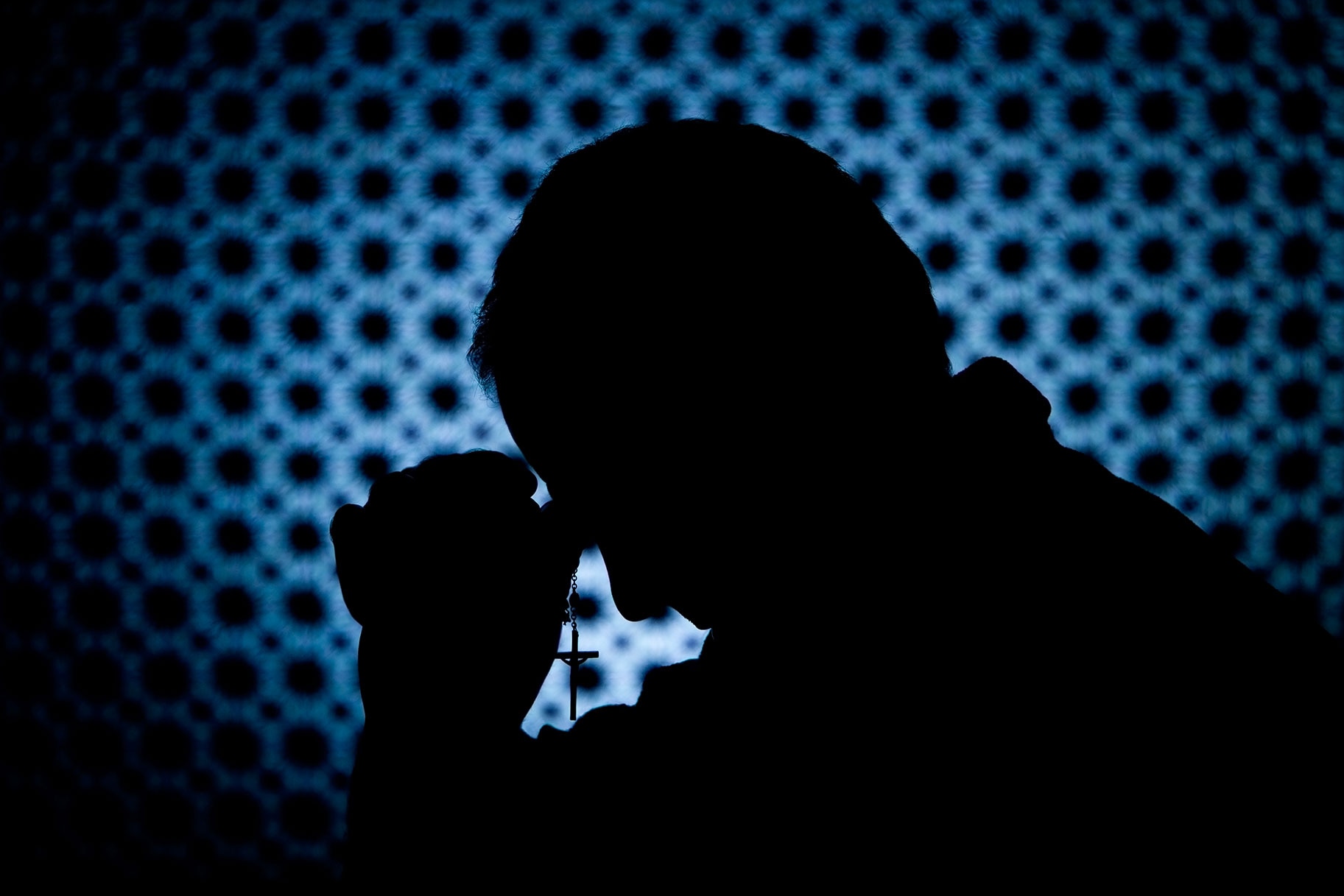Create a free profile to get unlimited access to exclusive videos, breaking news, sweepstakes, and more!
What Is The Clergy-Penitent Privilege And How Can It Protect Sex Offenders?
Conversations during confessions are often protected by state clergy-penitent privilege laws—but some are questioning whether they should be.

It’s a practice that is centuries old: confessing one’s sins to a trusted clergy member.
But could the protection these confessions receive through clergy-penitent privilege be aiding admitted child sex offenders?
“We have a responsibility to try to prevent aggressors from harming people,” James Connell, a canon lawyer and priest in the Milwaukee Archdiocese told Slate earlier this year. “With this privilege [of not reporting child abusers who confess], we’re reversing that. We protect the culprit and endanger the child.”
Clergy members are specifically mandated to report known or suspected child abuse or neglect in more than half of U.S. states, but in some states conversations are allowed to remain confidential if they occur during a confession or are considered privileged, according to 2019 report from the U.S. Department of Health and Human Services Child Welfare Information Gateway division.
When someone talks about child sexual abuse during confession, clergy members are not required to report those confessions to police in some states, due to laws in those states that protect the clergy-penitent privilege, according to Newsweek.
Just six states, including New Hampshire, North Carolina, Oklahoma, Rhode Island, Texas and West Virginia, deny penitent privilege in cases of child sexual abuse, according to the April 2019 HHS report.
Religious leaders have argued that what happens during a confession is sacred and that those communications should remain protected. Some legislators disagree and have moved to try to change the law in more states. And others have spoken out against the laws, arguing that penitent privilege not only conceals episodes of abuse but may also be allowing known predators to continue to prey on other victims.
Confessing Dark Deeds
Katheryn Harris Carmean White confessed to having sex with a 14-year-old boy to the elders—or religious leaders—in her Jehovah’s Witness congregation in Delaware in 2013, but the elders never reported the abuse to police, reported Reveal from The Center for Investigative Reporting, which launched an investigation into the child abuse policies of the religion.
White, who had been working as a teacher’s aide at Seaford Middle School, had allegedly been carrying on a sexual relationship with a teen boy who had also been a member of her same Jehovah’s Witness congregation, according to The News Journal.
When the 14-year-old boy reported the relationship to his mother, the pair immediately went to church elders to divulge the abuse. The victim’s attorneys claimed church leaders never notified legal authorities or called the state’s abuse hotline.
The Attorney General’s office in Delaware filed a lawsuit against the Laurel Delaware Congregation of Jehovah’s Witnesses in 2014 alleging that the abuse should have been reported, according to court documents obtained by Oxygen.com. The suit also named two elders at the time, Joel Mulchansingh and William Perkins.
However, attorneys representing the church claimed that the conversation did not have to be disclosed because it was similar to a “priest and penitent in a sacramental confession.”
A judge later ruled that although the state’s law protecting clergy-penitent privilege could have been interpreted to include Jehovah’s Witnesses, in White’s case it was unlikely the admission was part of a “sacramental confession,” Reveal reported.
According to court documents obtained by Oxygen.com, the case was settled in January 2018 for $19,500. There was no “admission of liability or guilt” as part of the settlement, which also required the elders of the Laurel Delaware congregation to go through the Stewards of Children training program.
As part of the agreement, Perkins was ordered to execute an affidavit stating that “communications involving allegations or acts of abuse with individuals, other than adult confessants seeking spiritual counseling, guidance or forgiveness, will not be considered ‘penitential confessions.’” The affidavit also stated that congregation's elders would comply with the law in reporting alleged cases of child abuse, the documents said.
White was eventually convicted of third-degree rape, fourth-degree rape and child endangerment, the local paper reports. She was given a six-year prison sentence.
Legislative Efforts
There have also been efforts at the state level to address clergy-penitent privilege. California State Sen. Jerry Hill introduced a bill in 2019 that would have stripped away at the clergy-penitent privilege in California, but the bill was met with aggressive opposition from religious leaders.
“What I hope is clear—not only to Catholics, but to any American committed to the First Amendment—is that we are dealing here with an egregious violation of the principle of religious liberty,” Bishop Robert Barron wrote in Word on Fire.
According to the California Catholic Conference, a priest who “breaks the seal” of confession is automatically excommunicated, The Mercury News reported.
“The ‘seal of confession’ is one of the most sacrosanct of Catholic beliefs and penitents rely on this unbreakable guarantee to freely confess and seek reconciliation with God,” the group said.
Hill eventually decided to put a revised version of the bill on hold this summer after he realized the legislation “would not have enough support to move on,” his office said in a press release.
In January, Utah State Rep. Angela Romero made the draft of a bill public that would remove the penitent privilege in her state. Under the bill she crafted, priests, bishops or other clergy members would be required to report any disclosures of child abuse, according to KSTU.
“We’re not attacking their religion. We’re looking to protect children from being harmed,” she told the station.
She hopes to bring the bill forward during the 2020 legislative session.
While it’s still unclear what kind of pushback she may get from religious institutions, Romero told the station in Julythat her focus is on protecting children.
"My concern is getting somebody off the street that shouldn’t be on the street, regardless of if they confessed to a clergy member or regardless if someone they know told a clergy member," she said. "Regardless of what that religious institution is, it needs to be investigated by law enforcement."
A five-year investigation into the child abuse policies of the Jehovah’s Witnesses by Reveal from The Center for Investigative Reporting is the subject of “The Witnesses.”





















